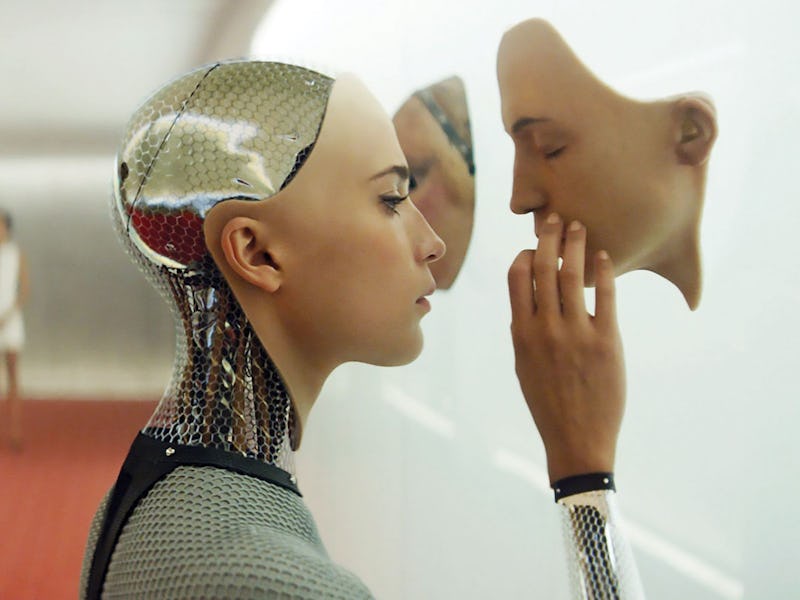Futurologist: By 2050, Most of Us Will Be Having Sex With Robots
As robots become commonplace, so do their charms.

By 2050, robots are going to be everywhere, says futurologist Ian Pearson, a consultant at the UK company Futurizon who, tellingly, also goes by @Timeguide on Twitter. They’ll be our coworkers, our domestic servants, and, according to Pearson’s new report commissioned by sex toy company Bondara, our robot friends with benefits.
But they won’t be the waxen Real Dolls of 2015. “You can theoretically buy robots now. They’re not very good,” Pearson tells Inverse. “They really fall far short of a proper sex robot.” The missing components aren’t better silicone orifices — although those are coming too, he says — but the right simulacra of emotional and sexual intelligence. Once we can talk to robots, and they talk back and synthesize our emotions, the shoe (and skirt) drops.
Such changes will be gradual, at first. As Pearson lays out in his report, the early adopters will be those able to afford them: “It’s a small market today, and will be a small market in 2025.” It won’t stay so forever, he says, extrapolating today’s expenditure on sex and dating (lumping all sex costs, including handcuffs and tapas together) to reach an estimated $1.5 billion UK market for sex toys. By 2050, he claims, that’s when more than half of us will have sex with a robot.
Why then? Not only do we have robot ubiquity, desensitizing the majority of us to the idea of docking more than our USB drives, Pearson predicts those robots will have “very high levels of AI.” This hinges on more than projections of increasing money spent on sex; Pearson invokes Moore’s law, the futurologist’s favorite rule of accelerating and shrinking thumbs. For every person who relies on Moore’s law to establish an argument, however, there’s a spectacular amount who believe Moore’s law will soon come crashing down.
Pearson disagrees with the critique that sex robots are inherently unethical. “I think it’s quite nonsensical,” Pearson says. He acknowledges that sex robots could cause some human problems, but the vast majority will be fine. “Men who want to objectify women or women who want to objectify men will do so anyway. You don’t need robots to do that.” By way of example, he turned to science fiction: Spielberg’s AI gigolos, Star Trek robot romances, and Mass Effect’s Joker and EDI love story (though, perhaps not surprisingly, he omitted Blade Runner’s replicants).
“Even though science fiction is fiction, it gives you an awful lot of clues,” he says. “Joker and EDI, they really have a vibrant relationship. And EDI really looks nothing like a human being.” The most interesting ethical questions we should be wondering about, he says, are what happens when we can “pop into each other’s nervous systems” and swap genders.